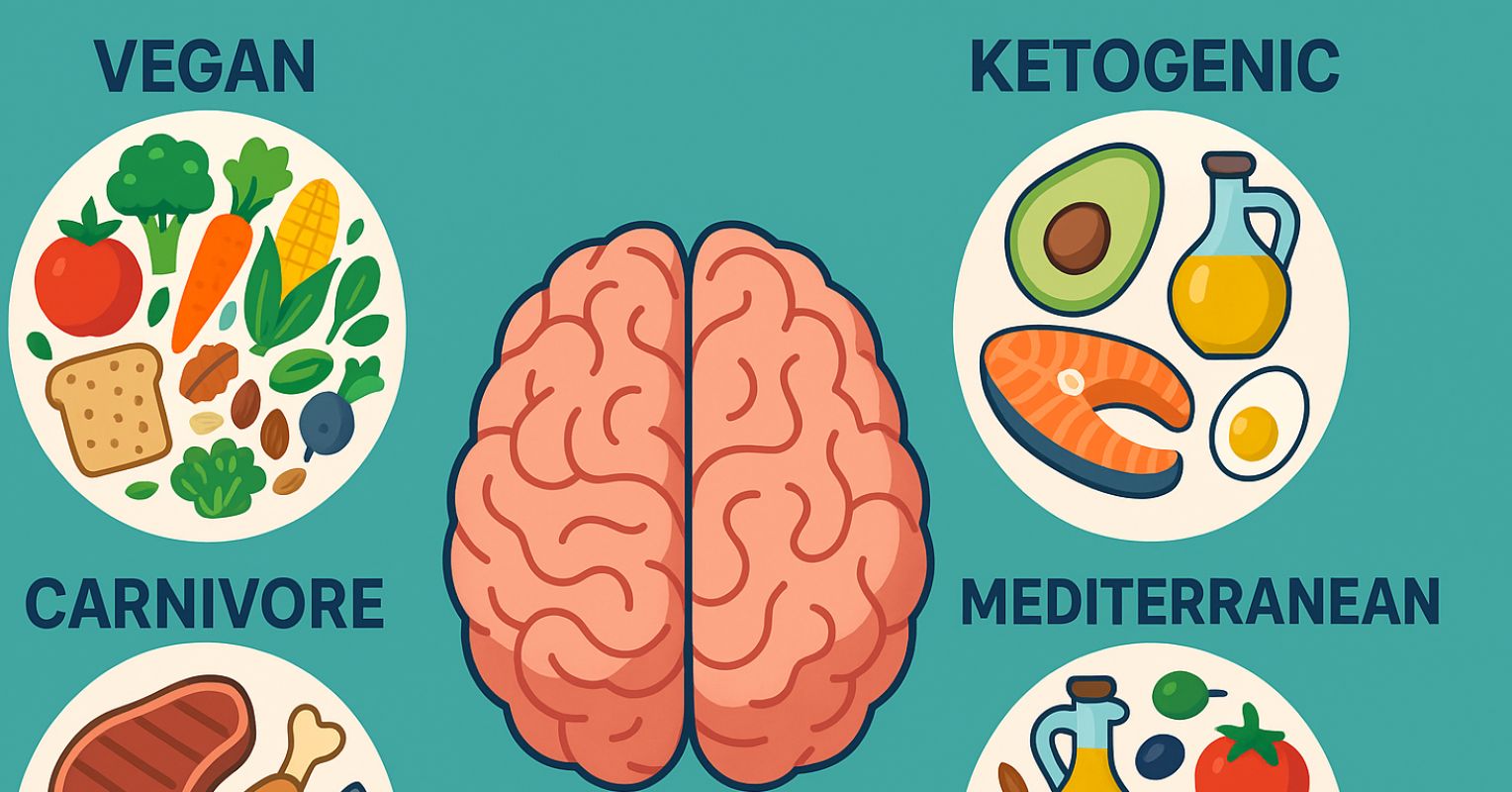
"A vegan diet eliminates all animal products, focusing instead on plant foods that include fruits, vegetables, grains, nuts, and seeds. Vegans will also often emphasize the benefit to animal welfare that can be an added (or central) value proposition to this dietary pattern."
"A vegan diet may lower systemic inflammation, a known driver of brain issues. Yet strict vegans may be at risk for insufficient intake of EPA and DHA (the brain's key omega-3 fatty acids) and critical brain vitamins like B12 and D."
Vegan diets eliminate all animal products and focus on plant foods. They are rich in polyphenols and soluble fiber, which support gut health and reduce inflammation, correlate with lower cognitive decline. However, strict vegans may lack essential omega-3 fatty acids, B12, and vitamin D, posing risks to brain health. The ketogenic diet promises metabolic benefits but risks harming gut microbiome diversity. The carnivore diet eliminates processed foods but lacks sufficient evidence and raises sustainability concerns. Mediterranean diets provide omega-3s and healthy fats, supporting cognitive function and mood stability.
Read at Psychology Today
Unable to calculate read time
Collection
[
|
...
]